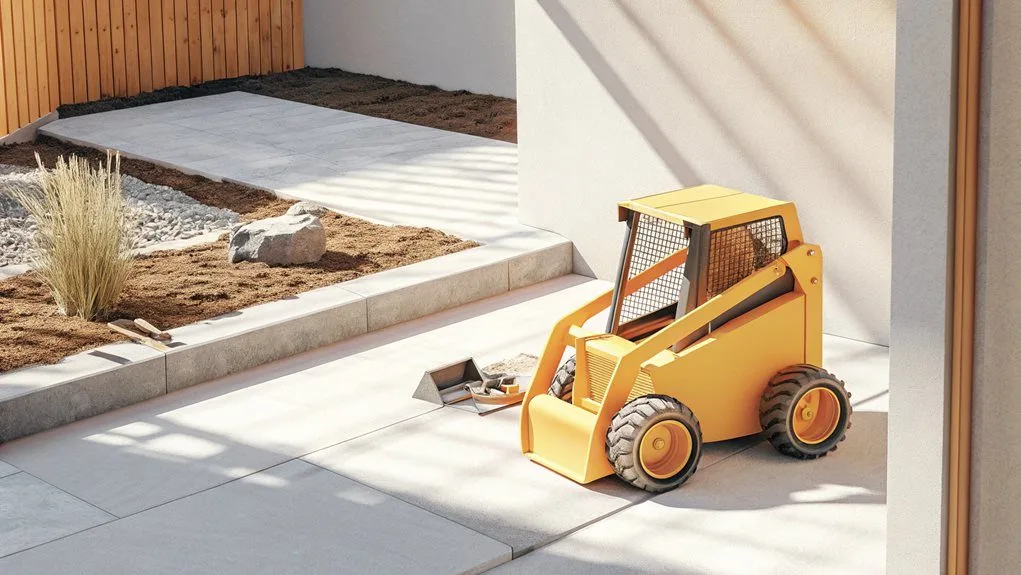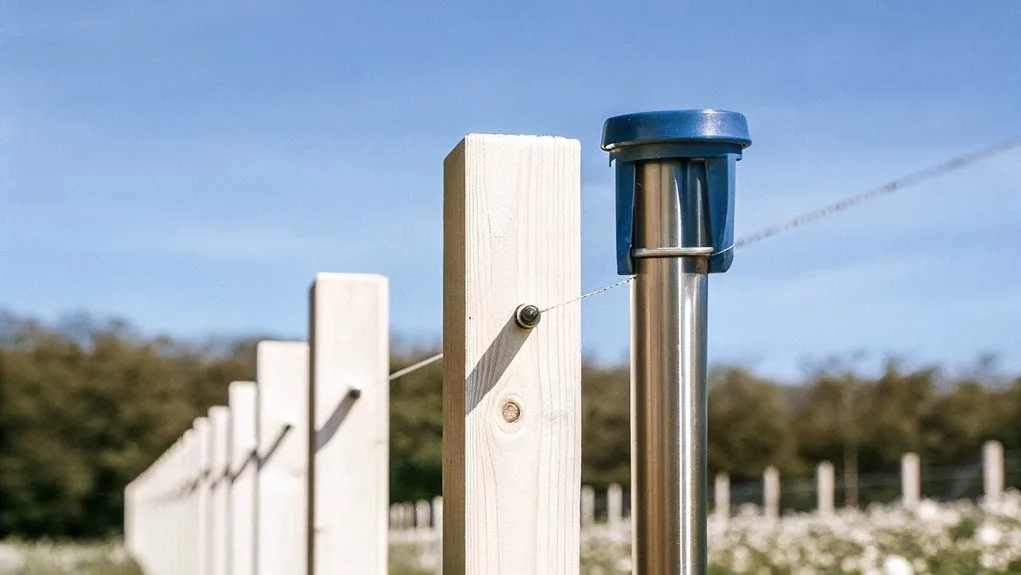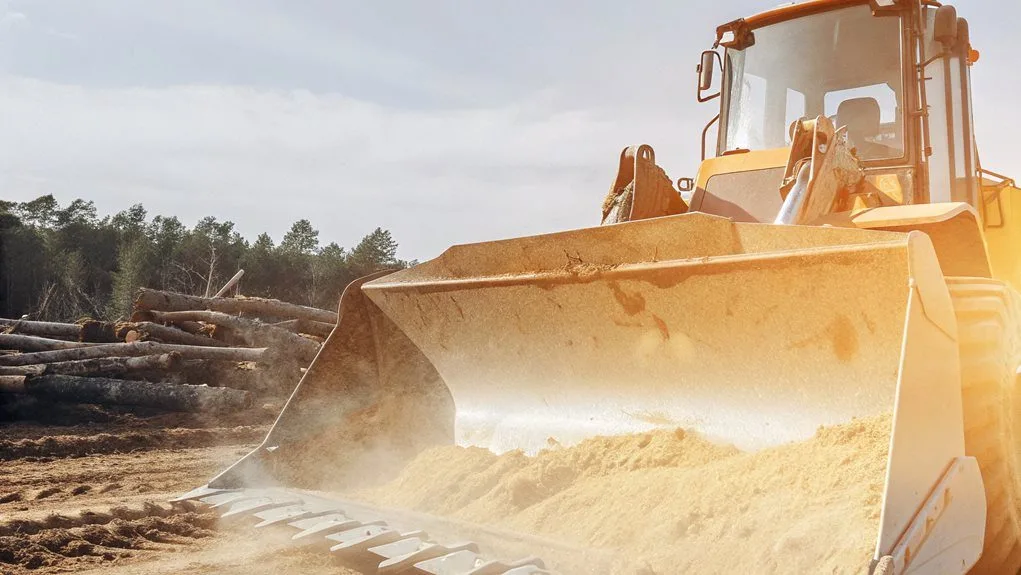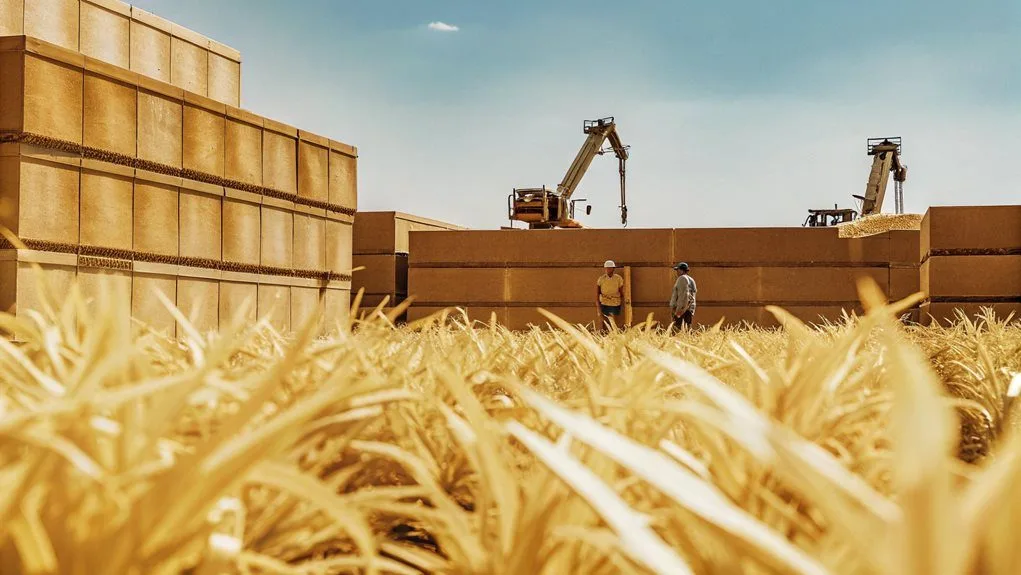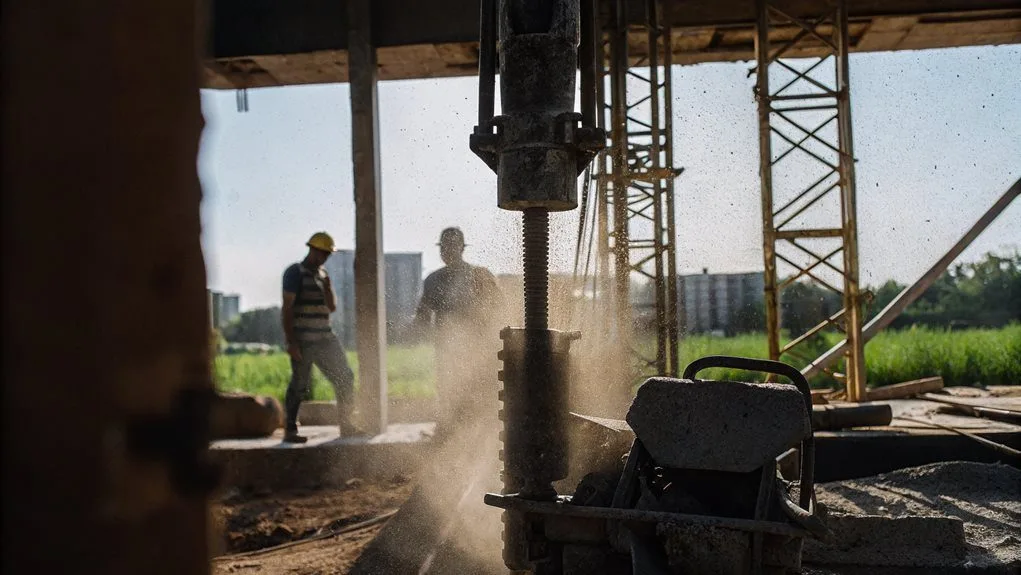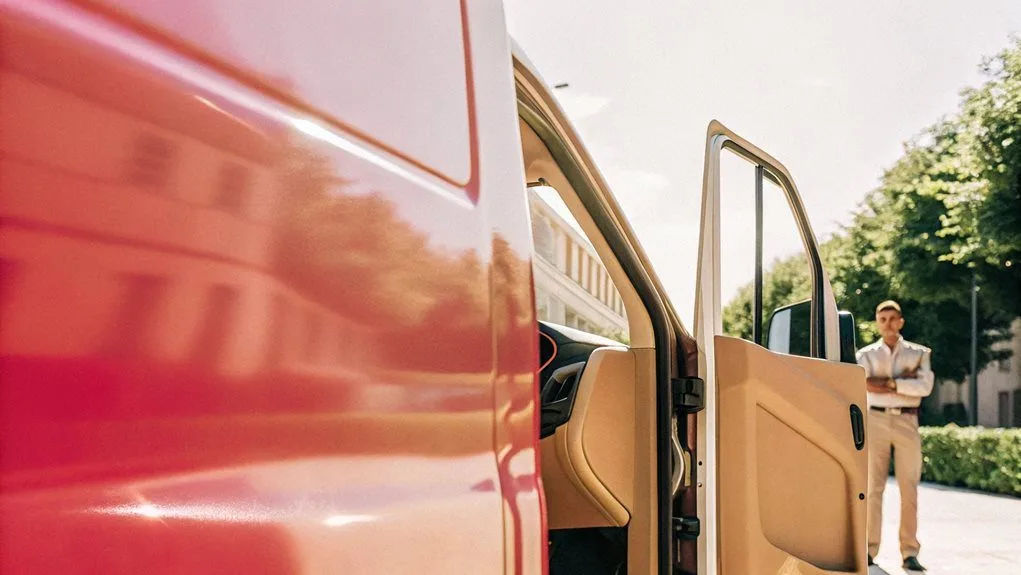So, you’re asking if you need extra insurance for your telehandler? Well, if you think operating one without it is a good idea, I’ve got a bridge to sell you! Minor scrapes can quickly escalate into major bills. You wouldn’t want to be liable for damage or theft, right?
Plus, what if the machine decides to take a holiday? Talk about a financial nightmare! Stick around to find out exactly what coverage you really need.
Key Takeaways
- Telehandler insurance is essential for protecting against accidents, theft, and liability, ensuring financial security for your equipment.
- Short-term insurance may be necessary for infrequent rentals, covering specific jobsite needs and potential coverage gaps.
- Specialized coverage is vital due to telehandlers’ unique operational risks, requiring tailored policies based on specific usage and equipment types.
- Expanded liability protection, including workers’ compensation and public liability, is crucial to mitigate financial risks from third-party claims.
- Regular maintenance and operator training are critical for policy validity, reducing risks and enhancing overall safety on jobsites.
Understanding the Basics of Telehandler Insurance
So, what’s the deal with telehandler insurance? You might think it’s just another fancy term to throw around, but it’s more like your safety net for those “oops” moments.
Telehandler insurance: your safety net for those unexpected “oops” moments that life throws your way.
Imagine your telehandler getting into a tussle with a tree. Not fun, right? Insurance steps in to cover those repair costs.
If it gets liberated by some not-so-nice folks, it’ll help replace it too.
Liability? Oh, that’s critical—getting sued after a mishap isn’t exactly a good time. Forklift insurance protects you from expensive liabilities that could arise from accidents. It’s especially vital given the significant investment needed for telehandler purchase and maintenance.
The best part? With companies requiring coverage for contracts, you’ll feel pretty important signing on the dotted line.
Just remember, regular maintenance isn’t a bonus; it’s a must. Otherwise, you might find your policy doesn’t hold water when you really need it.
Assessing Your Coverage Needs for Hired Equipment
Regarding hired equipment, you might think, “How hard can this be?”
Well, it can get complicated fast—especially when you realize there are types of equipment you probably didn’t even know existed. Additionally, you should be aware that short-term insurance covers durations from days to months for infrequent rentals on one jobsite. And let’s not forget about those pesky coverage gaps you never anticipated; they can bite you when you least expect it. It’s essential to understand that construction equipment rental insurance can provide crucial protection against financial liability in the event of accidents or theft.
Types of Hired Equipment
Choosing the right coverage for hired equipment isn’t just a walk in the park. Let’s face it, do you really know the difference between excavators and bulldozers? Trust me, it matters.
Whether you’re hiring compacting gear like steam rollers or handheld compactors, or specialised equipment like telehandlers and manlifts, each piece of machinery has its quirks. Compacting equipment plays a vital role in ensuring stability on construction sites, so you want to ensure you’re covered for those larger machines. Additionally, machines like excavators provide precision in excavation, which can significantly impact your project if not properly insured.
You might think a loader’s a loader, but insurance doesn’t. Careful—dumpers and cranes don’t come cheap if something goes wrong.
Plus, how about those conveyor belts? Sure, they’re just moving materials, but they’ll take thousands of rands out of your pocket if damaged!
Coverage Gaps Assessment
You’ve sifted through types of hired equipment, but have you thought about what’s missing from your insurance?
Sure, you might’ve a basic policy, but does it actually cover hired telehandlers?
Think about it: default exclusions could leave you high and dry.
If your operator isn’t certified, don’t be shocked when the claims adjuster denies your request.
And let’s not forget subcontractors; if they’re not listed, good luck getting them covered.
Regular maintenance logs? Yes, those might be your ticket to keeping coverage valid. Additionally, you should ensure your policy includes construction equipment coverage, as gaps could lead to costly losses.
Investing in insurance for business protection against claims can save you from severe financial impacts.
So, are you really protected, or just crossing fingers?
You wouldn’t walk into a braai wearing the same outfit as the host—don’t risk your insurance looking just as basic. Get it sorted!
Common Liabilities When Hiring Telehandlers
Hiring telehandlers can feel like walking a tightrope—one misstep and it’s a long drop.
Seriously, think about it.
Operator errors can turn a simple job into a disaster, especially if the person behind the wheel hasn’t had enough training.
And don’t even get me started on equipment malfunctions or those pesky terrain hazards.
Visibility issues? Oh, joy! You could be operating next to live wires or buildings just waiting to be bumped.
Plus, if the load isn’t secured right, you might as well be juggling grenades.
Let’s not forget the fun of weather changes or tight spaces; they’re great for increasing collision risks.
Are you feeling safe yet? You get the idea—keep your liabilities in check!
Additional Coverage Options for Enhanced Protection
So, you think basic coverage is enough for your telehandler? Think again! Expanded liability protection, environmental hazard coverage, and rental reimbursement options could actually save your butt when things go sideways
because let’s face it, they usually do.
Expanded Liability Protection
Regarding protecting yourself from the unexpected while using telehandlers, it can feel like traversing a maze, can’t it?
You’ve got workers’ compensation for your crew, public liability for those pesky third-party claims, and even excess liability to up your game.
But wait, there’s more! How about a little legal expense cover when someone decides to sue? Sounds like a party—except it’s not.
Those accidents happen faster than you can say “oops!” And don’t forget about those special endorsements like fire and theft protections.
You might think, “Can it get more complicated?” Oh, absolutely.
Just when you thought you’d it covered, let’s throw in flexible excess amounts. Welcome to the realm of expanded liability protection, where simplicity is rare yet so desired!
Environmental Hazard Coverage
Environmental hazards and telehandlers—sounds like a match made in chaos, right? If your telehandler accidentally spills fuel or chemicals, you might find yourself knee-deep in trouble.
This is where environmental hazard coverage swoops in like a superhero, offering protection against those pesky pollution liabilities.
You wouldn’t want to be stuck paying for a cleanup that costs more than your machine, would you?
Industries like construction or agriculture often require this insurance, so you can keep your contract and your sanity.
Plus, the right policy includes cleanup costs and third-party claims.
Who doesn’t want to sleep at night knowing they’re covered? Just be honest—can you really afford to ignore these insurance options? You can’t, and you know it!
Rental Reimbursement Options
Rental Reimbursement Options
Rental reimbursement options are like your safety net during the circus act of equipment management.
Imagine this: your telehandler breaks down, and you can’t lift those heavy loads. Panic mode, right?
Well, with rental reimbursement, you won’t need to scream.
This coverage kicks in to help you hire a replacement whilst yours is in the shop, keeping your business rolling.
You can tailor this option to suit your various equipment needs.
But hey, why wouldn’t you?
It’s not like you enjoy downtime, right?
Plus, it’s a smart way to save rands in emergencies.
So, are you ready to give yourself that peace of mind everyone craves?
Trust me, it’s a no-brainer; your business deserves it!
Key Considerations in Policy Terms and Conditions
When you’re delving into the domain of telehandler insurance, it’s rather like playing dodgeball—with policy terms flying everywhere. You can feel overwhelmed, can’t you?
First off, you need general liability, especially if it’s not just for you.
Don’t forget property insurance to cover your prized telehandler from loss or damage.
Oh, and worker’s compensation? Yes, you rather have to have it.
If you hit the road, gear up with automobile liability.
Then there’s the joy of extended warranties, which can range from R0 to R15,000 deductibles—because who doesn’t love a surprise bill?
Don’t forget: customising your policy is essential. You wouldn’t wear oversized clothes, would you? Insurance should fit like a glove.
Happy hunting!
The Importance of Compliance and Safety in Telehandler Operations
Investigating the field of telehandler operations isn’t just about knowing how to pull levers and push buttons.
It’s a dance with safety, compliance, and, let’s be honest, a bit of paperwork.
You do know you need special training, right?
Only certified operators can make sense of those load charts—because overloading is a quick ticket to disaster.
Only certified operators can decode load charts—overloading could lead to a catastrophic fallout.
Ever tried explaining to your boss why you dropped a load? Not fun.
And don’t forget about inspections!
Skipping daily checks is like playing Russian roulette with heavy machinery.
The Department of Employment and Labour and manufacturer guidelines aren’t just suggestions; they’re your lifelines.
Conclusion
So, do you really need extra insurance for a telehandler? Think of it like wearing a seatbelt; it’s that “better safe than sorry” mantra we all ignore until it’s too late. Sure, you could gamble on your luck, but do you want to risk a financial meltdown over a hired piece of machinery? With all the moving parts and potential mishaps, it’s probably wise to have that extra layer of coverage. Better safe than sorry, right?

